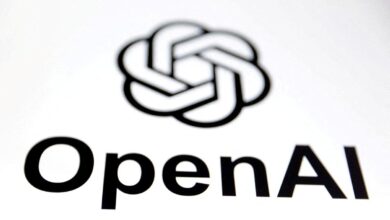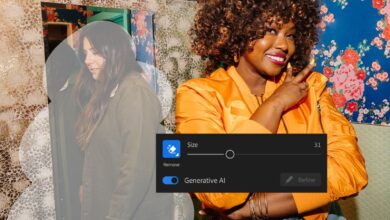Law Firms Start Training Summer Associates on Using Generative AI

Some Big Law firms are now making summer associates learn the ins and outs of generative AI as they begin integrating what’s considered to be a game-changing technology for the profession.
K&L Gates, Dechert, and Orrick Herrington & Sutcliffe have incorporated training on the technology for this year’s class of summer associates, teaching them how to use research and chatbot tools now being used by the firms. The programs offer a window into what some firms believe artificial intelligence will mean for those now entering the profession.
Future junior lawyers won’t be replaced by AI, as some fear, but they will need to harness it to be successful, said Brendan McDonnell, a K&L Gates partner and member of the firm’s AI solutions group. That includes understanding how to effectively interact with generative AI chatbots to unearth the most useful information for clients, he said.
“That’s the whole idea about the training program: You need to teach people how this is going to impact the way they come to work,” said McDonnell. While AI will automate many tasks, he said, it’s also going to open up new lines of legal practice while freeing up new professionals’ time to learn and master the complex work they went to law school for.
Most firms are still in an experimentation phase when it comes to deploying generative AI chatbot and research tools. Firms’ use of the tech is also dependent on clients’ openness to it. “We’re in a transition period,” said Alex Su, the chief revenue officer at Latitude Legal, a global flexible legal staffing firm. “It’s hard to say there’s going to be a huge impact in how law firms staff in the near-term.”
Still, legal experts caution that future lawyers need to address the technology.
“It used to be that a lawyer was sufficiently tech savvy if she knew her way around Word and Westlaw,” said Nora Freeman Engstrom, the co-director of the Deborah L. Rhode Center on the Legal Profession at Stanford Law School. “Those days are over. In order to offer top-tier legal services in the 21st century, lawyers need facility with a suite of sophisticated tech-based tools.”
There’s an apparent marketing component as well for the firms. Summer associate programs—roughly the equivalent of a paid summer internship that typically leads to a full-time job offer—have long been part of an effort for law firms to promote their brand to law students while fostering a recruiting pipeline. A generative AI training “sends a great marketing signal” about the firm’s commitment to a new technology, said Su.
The “devil’s in the details” for this type of training, especially when it involves those entering the profession, said Michele DeStefano, a professor at the University of Miami Law.
“The biggest issue is even if they know how to use AI, if they don’t have the substantive law background, you can’t discern whether you got a good answer,” she said.
Prompt Engineering
K&L Gates and Orrick each partner with tech learning platform AltaClaro for firmwide trainings on subjects such as “prompt engineering,” regarded as the science of interacting with generative AI models and how the technology works.
AltaClaro is working with 15 AmLaw200 firms on generative AI trainings, said CEO Abdi Shayesteh, though Orrick is the only one that has incorporated those programs in its summer associate training, beginning last year.
Orrick said the first week of this year’s program included a training on prompt engineering, in addition to a day dedicated to seminars and ideas sessions around generative AI.
“It’s going to be incredibly important for new lawyers to understand what technologies are available and how to use them,” said Kathleen Orr, Orrick’s head of practice innovation. She noted AI tools in use by Orrick include DraftWise, a drafting and negotiation assistant, Kira, an AI contract analyzer, and WestLaw’s Precision, an AI-assisted research tool.
K&L Gates’ summer associate class will go through firm-led generative AI trainings and be introduced to CaseText’s Co-Counsel, a legal AI assistant the firm is already using for areas such as case research and summarizing depositions, said McDonnell. The firm will later match each associate with a lawyer identified internally as a generative AI “power user” to use the technology in their day-to-day work.
“We hope that’s kind of going to give them a good mix of theory and practice,” said Carolyn Austin, K&L Gates’ director of practice innovation.
Dechert, for its part, is doing something similar. The firm will focus on one-on-one training between a summer associates and attorneys who are using AI tools in their work, said Thor Alden, Dechert’s associate director of innovation.
Alden noted the program highlights how legal training is “fundamentally” changing. But he said the tools aren’t replacing the firm’s assessment of legal skills.
“When you’re thinking of a summer associate, one of your main goals is to assess whether the firm wants to hire you, and that should ultimately be driven by legal capabilities,” he said.
Protecting the Brand
For both experienced and young lawyers, the biggest warning sign that comes with the new territory is the documented accuracy problems, or hallucinations, of AI models. An infamous example is two New York lawyers getting fined $5,000 last year after submitting a brief citing six nonexistent cases that one of the lawyers admitted were supplied by OpenAI’s ChatGPT.
“A big challenge for all law firms will be trying to make sure that they can continue to think like lawyers,” said McDonnell. “I mean, you can ruin the brand of a law firm if we don’t actually make sure that the output is vetted.”
Notwithstanding those risks, many law firms, traditionally slow movers when it comes to new technology, have embraced generative AI. Dechert launched its own internal chatbot, DechertMind, in April 2023. Wilson Sonsini has also created its own internal AI tool. Firms such as A&O Shearman and Paul Weiss are customers of the generative AI legal startup Harvey, which has received more than $100 million in funding to date.
“For the first time the legal industry is moving at a better pace and looking at how to adopt this technology,” said AltoClaro’s Shayesteh. “It’s because they see the competitive advantage from those who adopt this the right way.”
Bloomberg Law sells legal research tools and software, including some that make use of generative AI.



